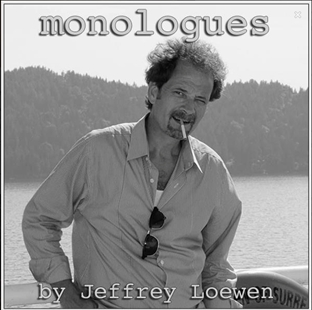
Image Credit: Compilation/Jennifer Stahn
June 10, 2015 - 7:41 AM
Death.
It’s not the hottest topic on the cocktail party circuit, or the returned-to-refrain at one’s coffee-shop meet-ups. It’s not.
We’re transfixed by Death, of course.
But it’s something to observe, for the most part. It spills into one’s purview through the endless screens that mediate our lived lives. And if the bloodbaths reported on the daily news aren’t enough to sate our lust for Death-as-entertainment, there are endless programs focused upon grisly murders and the forensic science that unravels their mystery, and dramas aplenty that deliver the edifying tales that confirm our suspicion that the world is an awful place and its peoples merely fodder for filmed atrocities.
Somehow, Death is all-pervasive; but we rarely acknowledge personally its impingement upon our own lives.
Perhaps there is a Death-resisting electrical impulse in our brains, when the hardware is firing correctly.
How else to explain the avoidance of our own ends that we see all around us everyday? The callous disregard for our neighbours, locally and globally; the heedless surge towards excess on virtually every level imaginable; the insistence upon consuming without end the variety of consumables available to us as pampered pusses in the declining days of Empire.
Somehow (and I’m as guilty as any mere mortal alive) in the midst of our gorging ourselves on pulled pork tacos (julienned Granny Smith apples added, yes please!) and mind-messing mescal, we miss the obvious vanity: Death stalks just beneath the table-top, surveying salaciously the meal that we ourselves will make when Death comes to take us to his own larder in the Beyond.
There’s an economy, of course, that’s been developed over time to cater to those who seek to cheat Death of its inevitable victory. Everything, it seems has been hijacked by capitalist economics, even democracy itself.
But Death-Avoidance is an industry that caters cravenly to the very wealthiest among us.
It’s ideologues are men like Ray Kurzweil, an episodically brilliant man who might also be a crackpot. The inventor of the electric piano while an MIT geek has in the last couple decades turned his attention to The Future. And he sees a merging of machinery with humanity that, to this writer’s all-too-human mind, is horrifying.
Kurzweil predicts that, with the emergence of atom-sized micro-electronic machines switching off and on various functions in the human body, not only will humanity (at least the wealthiest amongst us) be able to reverse disease; but life span will increase dramatically.
Hell, if you thought the Old Testament beggared belief with Biblical personages aged into the hundreds of years, you might think that Kurzweil’s predictions are wacky too!
But how desirable is everlasting life as we know it? What economic demands would be placed upon us if we all lived to beyond a hundred years? Would the comparatively young ever get a crack at the golden jobs of the future with so many Millennials simply refusing to let go of this mortal coil?
Happily, these are concerns that will never affect me personally.
Nor will these concerns trouble my dear old Dad, aged eighty-four, and lying abed in Hospice.
Dad’s concerns are much more immediately human. Because after living with an aggressive cancer coursing through his system for the last couple years, he’s had enough, already. But he’s a little confused. He wonders if he’ll ever really die.
Lying patiently in his bed on Sunday, Dad greeted me with a smile. He was excited that I had finally come for a visit that day.
Earlier in the afternoon I had the pleasure of hosting a book launch at a local independent bookseller for the very last of my father’s many books. He listened intently as I explained the brisk nature of sales of his new book as the launch’s attendees snapped up copies of his handsome volume. He was heartened to hear the many good wishes extended to him from his friends that showed up at the event. And he wondered if he would still be alive when the book would see its first reviews by magazines and journals.
And then he frowned, and sighed, looking out the window to the majestic mallard perched on the rocks outside the glass pane. Forlorn.
“Oh, Jeff,” he lamented. “Does anyone ever die here?”
I was astonished for a moment and taken aback. “What do you mean, Dad?”
Cross now, and with furrowed brow, “I mean: How do we know when anybody dies in this damned place?”
Mum and I looked at one another, and back at Dad.
“Well, Dad,” I started to explain, “It’s not like the hospice rings a bell every time a proverbial angel gets her wings.” Dad continued looking at me intently, like a bird about to snatch a worm.
“I mean,” I continued, “that death comes to everyone here at the Hospice, eventually; but they’re pretty calm about the whole thing... The funeral folks probably come surreptitiously and, without much ado, cart away the body of the deceased for the next stage of its journey.”
“Yes,” Dad said, “But how do we know that somebody has died?”
Mum piped up next, “Harry! Just the other day, a lady down the hall from you died! They took her away, and there’s somebody else now in her old suite. What you're like!” Mum, shaking her head.
And with that Dad seemed a little more at ease.
“Good,” he said with finality. “It’s good to know that people are still dying these days!”
Indeed they are, Dad. Yes, indeed. And it’s a good thing, too.
— Jeffrey Loewen is a Kelowna-based writer who plays music by day and politics by night
News from © iNFOnews, 2015